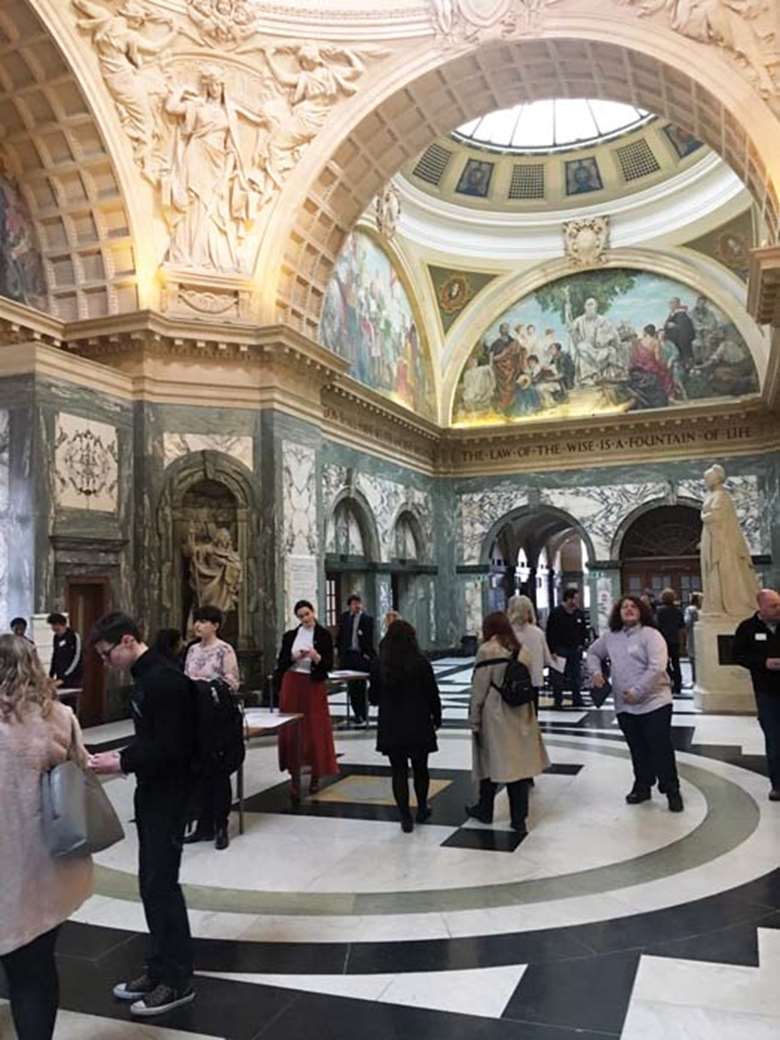Old Bailey event sees young people debate pros and cons of votes at 16
Derren Hayes
Monday, May 27, 2019
Is the country ready to lower the voting age to 16 for all UK elections? This was the question that was debated at a unique event held recently at the Old Bailey.

The event saw two groups of young people put forward the arguments on both sides of the debate, with a jury of legal experts, sector commentators and youth leaders giving the "verdict" on whether votes at 16 should now be introduced.
It was held just days after the all-party parliamentary group for votes at 16 published a report setting out the case for lowering the voting age from 18 to 16 UK-wide, in line with changes made in Scotland recently.
Organised by charity Partnership for Young London, the event was held in Court 1 of the Old Bailey, which dates back to 1907 and was used for famous trials including the Soham murders and the Yorkshire Ripper.
Proceedings were presided over by Judge Sarah Munro, with the format sticking to that used in a conventional court case with both sides putting forward witnesses to support their arguments and being given the chance to cross examine.
The case for
The voting age was lowered from 21 to 18 in 1969. This reflected changing attitudes towards young people and acknowledged a wider transformation in how people understood the rights, roles and responsibilities of young adults.
Young people have a variety of rights and responsibilities that begin at 16, including to join the armed forces - one in four army recruits is under the age of 18; legally have sexual relationships; and pay national insurance contributions, with around nine per cent of the age group doing so.
Proponents for votes at 16 argued that, just as in 1969, the increasing awareness of social issues and involvement in public campaigning of school pupils - as recently illustrated in the climate change protests - supported lowering the voting age.
Caroline MacFarland, founder of thinktank Common Vision, said young people receive access to different rights in society at different stages of their lives, but added there is a "demand for having more engagement in politics" from 16-year-olds.
The point was also made that three-quarters of 16- and 17-year-olds eligible to vote in 2014's Scottish independence referendum exercised that right.
Following the independence referendum, Scotland introduced laws to enable 16- and 17-year-olds to vote in Scottish parliament elections. A similar change looks set to be introduced in Wales soon. The "for" camp points to this as highlighting the need to have one consistent age that applies to all elections in every country in the UK.
The case against
Dr Andy Mycock, a lecturer in youth politics at the University of Huddersfield, said the Scottish independence election had had a "remarkable effect" on youth engagement in politics, but he cautioned that turnout of 16- and 17-year-olds was still 10 per cent below the overall turnout, and that there had been "no sizeable increase" in Scottish elections turnout.
The main thrust of the "no" camp's argument was that while votes at 16 were "inevitable", there needs to be good quality political education for all pupils first.
"Compulsory political education would tackle prejudice in politics and break down barriers," said one of the young people arguing against votes at 16. "All 16- and 17-year-olds need political education if you want to lower the voting age."
While accepting that 18 is "not a magical age", Mycock agreed that "political education should be part of the socialisation of all young people".
Another supporter of the "no" camp said the quality of citizenship education currently is patchy and "doesn't teach children about the voting system".
"It is not a priority for teachers and so isn't a priority for children - we need to give young people the formal education they need," he added.
The verdict
After the arguments for and against were summed up, the jury retired to consider their verdict. They returned a majority decision in favour of votes at 16 for all UK elections.




